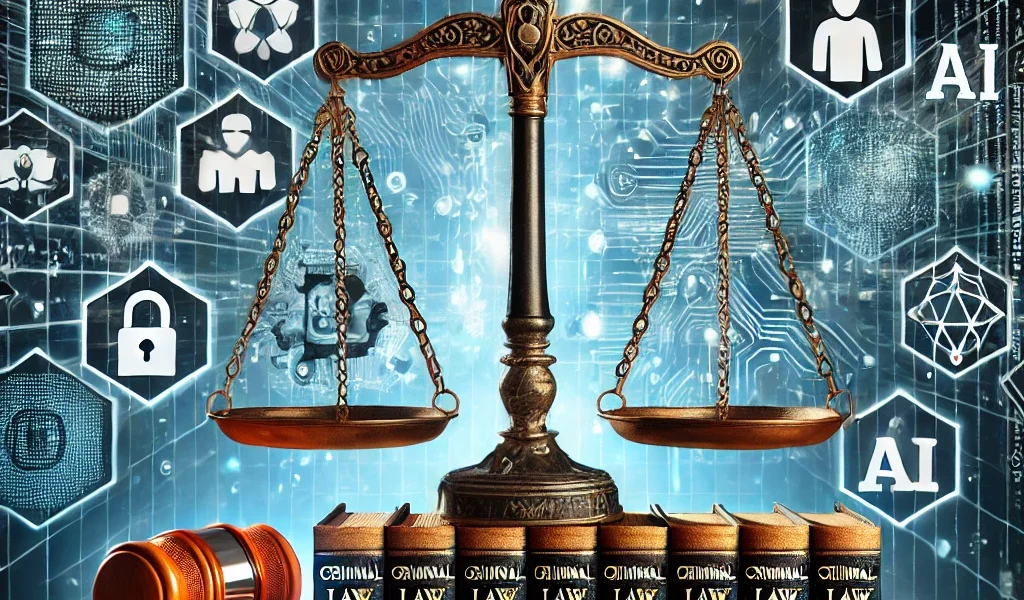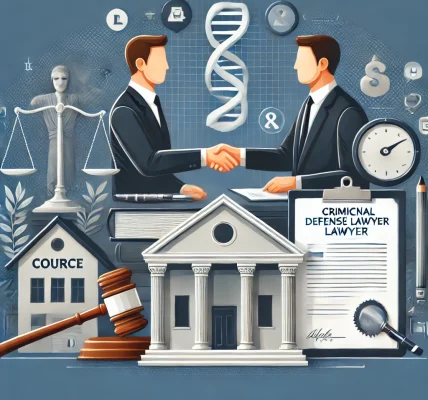Introduction
The rapid advancement of technology has significantly impacted various aspects of life, including criminal law. As new technologies emerge, the legal system must evolve to address modern crimes such as cyber fraud, identity theft, and financial misconduct. Criminal law plays a crucial role in ensuring justice while adapting to new technological challenges.
In the context of loan policies, technological advancements have led to both opportunities and risks. Digital transactions, online loan applications, and automated financial processes have increased efficiency but also introduced new forms of financial crime. This article explores how criminal law has evolved to tackle these issues while maintaining financial security.
The Impact of Technology on Crime and Criminal Law
With the rise of digital technology, traditional crimes have transformed into complex cybercrimes, requiring updated legal frameworks. Some key technological advancements that have influenced criminal law include:
- Cybercrime and Digital Fraud – Online scams, phishing, hacking, and data breaches.
- Blockchain and Cryptocurrency Fraud – Unregulated financial transactions leading to money laundering.
- Artificial Intelligence (AI) in Crime Prevention – AI tools used for fraud detection and surveillance.
- Biometric and Digital Identity Theft – Unauthorized access to financial data through fingerprint and facial recognition technology.
- Surveillance and Privacy Laws – The legal implications of digital surveillance, data tracking, and privacy violations.
Evolution of Criminal Law to Address Technological Crimes
To combat emerging digital threats, criminal law has evolved in several key areas:
1. Strengthening Cybercrime Laws
- Governments have introduced strict cybercrime legislation to punish online fraud, hacking, and unauthorized access.
- Laws such as the Computer Fraud and Abuse Act (CFAA) in the U.S. and the General Data Protection Regulation (GDPR) in the EU regulate digital crimes and data privacy.
2. Regulating Cryptocurrency Transactions
- Criminal law now addresses financial crimes involving cryptocurrencies like Bitcoin and Ethereum.
- Anti-money laundering (AML) and Know Your Customer (KYC) regulations ensure transparency in digital transactions.
3. Enhancing Digital Evidence and Forensics
- Law enforcement agencies use digital forensic tools to investigate cybercrimes.
- Courts accept digital records, IP logs, and blockchain transactions as evidence in legal proceedings.
4. Updating Privacy and Surveillance Laws
- The rise of AI-driven surveillance has led to legal debates over privacy rights and government monitoring.
- Laws now regulate data collection practices, ensuring that individuals’ digital rights are protected.
5. Addressing AI and Automated Decision-Making
- AI is increasingly used in legal decision-making, fraud detection, and risk assessment.
- Criminal law ensures that AI-based systems follow ethical guidelines and do not discriminate against individuals.
The Role of Criminal Law in Protecting Loan Policies
Financial institutions rely on criminal law to safeguard loan transactions and prevent fraudulent activities. Some key areas where criminal law intersects with loan policies include:
- Preventing Identity Theft in Loan Applications – Laws require lenders to verify customer identities to prevent fraud.
- Addressing Loan Scams and Online Fraud – Criminal law penalizes individuals who use fake documents or false information to obtain loans.
- Regulating Fintech and Online Lending Platforms – Legal frameworks ensure that digital loan providers follow ethical lending practices.
- Holding Cybercriminals Accountable – Strict penalties for hacking into financial systems or stealing customer data.
Challenges in Implementing Technological Criminal Laws
Despite advancements, enforcing technology-related criminal laws presents challenges:
- Jurisdiction Issues – Cybercrimes often cross international borders, making prosecution difficult.
- Rapidly Changing Technology – Laws must constantly evolve to keep up with new threats.
- Balancing Privacy and Security – Governments must protect both public safety and individual privacy rights.
- Lack of Awareness – Many individuals and businesses remain unaware of their legal rights regarding digital crimes.
Conclusion
The evolution of criminal law in response to technological advances is crucial in maintaining justice and security in the digital age. As financial transactions become more digitalized, legal frameworks must adapt to prevent fraud, protect personal data, and regulate new financial technologies.
For individuals and businesses, staying informed about cyber laws and financial regulations is essential to prevent legal complications. Criminal law continues to evolve, ensuring that technology serves as a tool for progress rather than a gateway for criminal activities.




